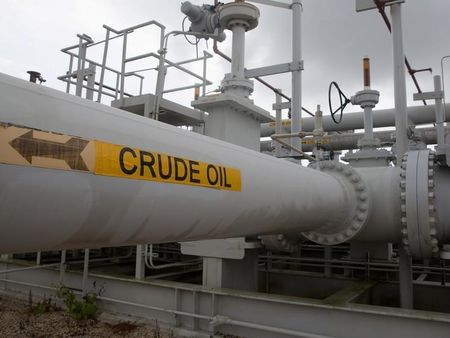
Investing.com — Oil prices rose Friday and were headed for a positive week as persistent concerns over the Middle East conflict kept a risk premium in play.
At 08:30 ET (12:30 GMT), Brent oil futures rose 0.9% to $75.02 a barrel, while West Texas Intermediate Crude futures climbed 0.9% to $70.84 a barrel.
Oil set for weekly gains
The crude benchmarks were trading over 2% higher this week, recovering some measure of the steep losses logged earlier in October.
A bigger recovery in crude was held back by data showing a bigger-than-expected build in U.S. inventories, indicating less tight supplies in the world’s biggest fuel consumer.
A strong dollar also weighed on crude as continued concerns over a slower pace of interest rate cuts by the Federal Reserve kept traders biased towards the greenback.
Oil prices were trading off weekly highs as speculation over the Middle East conflict sparked some volatility in markets.
While Israel presented a harsh rhetoric against Iran this week, U.S. officials kept up their efforts to broker a ceasefire, especially before the 2024 presidential elections, which could alter future U.S. policy in the Middle East.
Israel has vowed to attack Iran over an early-October strike, which kept traders on edge over an escalation in the conflict that could potentially disrupt supplies from the Middle East.
China stimulus in focus
Recent weakness in oil markets was driven chiefly by concerns over slowing demand in top importer China, as a swathe of stimulus measures from the country spurred limited optimism.
Traders were underwhelmed by a lack of details from Beijing on the timing and scale of its planned measures, especially on the fiscal front.
The Standing Committee of the National People’s Congress is now set to meet in November, where policymakers are likely to decide on plans for more fiscal spending. The committee was initially expected to meet in late October, but was delayed.
“The market continues to be caught between supply risks related to ongoing Middle East tension and lingering demand concerns. The outlook for a comfortable 2025 oil balance will also be playing a role in price action,” said analysts at ING, in a note.
(Ambar Warrick contributed to this article.)
This post is originally published on INVESTING.



